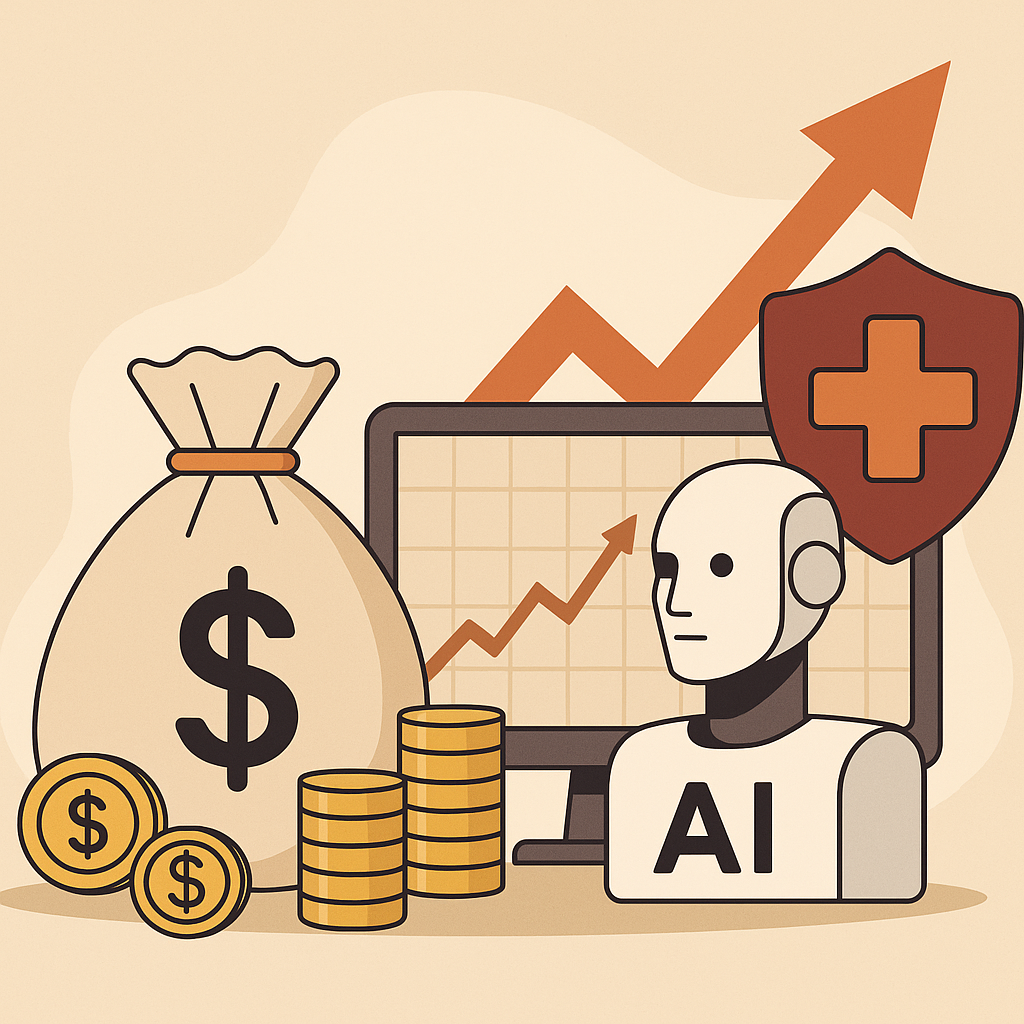Khosla Ventures Invests in R1: AI-Driven Healthcare Automation Enters a New Growth Phase
In a move that signals a pivotal shift toward automation in the healthcare industry, R1 RCM has secured a major investment from Khosla Ventures. The goal? Supercharging its AI-driven revenue cycle management tools. As investors increasingly pivot toward companies transforming legacy industries through artificial intelligence, this strategic capital injection offers more than just business momentum — it offers a lens into the future of tech-enabled healthcare.
Why This Investment Is Catching Investor Attention
The healthcare sector is under immense pressure to streamline operations, cut administrative costs, and enhance accuracy. In the U.S. alone, administrative costs account for over 25% of total hospital spending, according to a study published in Health Affairs. That’s where R1 RCM comes in — a publicly traded leader (NASDAQ: RCM) in healthcare revenue cycle management that leverages automation to handle everything from patient registration to insurance billing.
Khosla Ventures, the well-known Silicon Valley VC firm with a strong track record in backing transformative AI and healthcare startups, sees a future where intelligent systems reduce friction in healthcare administration. Their recent investment in R1 underscores the rising confidence in enterprise-level AI to solve some of healthcare’s most persistent inefficiencies.
While the exact investment figures remain undisclosed, insiders report the funding will be used to accelerate R1’s AI integration into hospitals and health systems nationwide. TradingView flagged the story as trending among institutional watchers this morning, noting a mild uptick in trading volume around RCM shares.
Why This Matters for Investors
Artificial intelligence is no longer confined to chatbot experiments and algorithmic trading — it is moving into mission-critical enterprise workflows. According to McKinsey & Company’s 2025 AI in Healthcare Outlook, AI applications in revenue cycle management are expected to grow at a CAGR of 30% through 2030, potentially unlocking billions in cost savings.
This aligns with a broader trend where investors are allocating more capital toward “invisible AI” — tools that don’t generate flashy consumer headlines but drive measurable business results under the hood. In this case, automating complex healthcare billing processes has the potential to radically improve operating margins, especially for large hospital systems struggling with workforce shortages and margin compression.
“R1 is not just optimizing workflows — it’s reinventing them,” noted Ananya Kapoor, an AI-healthcare analyst at RBC Capital Markets. “This investment is a vote of confidence in AI’s power to make enterprise operations smarter and leaner.”
AI in Healthcare: From Hype to Scalable Value
AI has often been criticized for overpromising and underdelivering in complex, regulated environments like healthcare. But R1 represents a new class of implementation-focused companies doing the heavy lifting behind the scenes. Instead of grand consumer-facing AI products, they’re embedding machine learning directly into claims management, patient communications, and financial forecasting systems.
Recent data from CB Insights shows that VC funding into healthcare automation startups grew by 58% year-over-year, with particular interest in back-end AI tools. Notably, institutional investors are favoring companies like R1 with proven track records, regulatory experience, and existing infrastructure — a safer bet than early-stage experimentation.
Future Trends to Watch
- Enterprise AI Adoption: The success of R1 could serve as a blueprint for other healthcare tech firms aiming to implement AI in enterprise processes — a key growth area for investors to track.
- VC Movement in Mature Markets: Khosla Ventures, typically associated with early-stage plays, investing in a mature firm like R1 may signal a broader shift where late-stage companies become prime targets for strategic tech upgrades.
- Revenue Cycle Tech as an Investment Niche: As hospitals face mounting financial pressures, companies offering scalable, compliance-ready AI solutions are poised to attract both customers and capital.
Key Investment Insight
R1’s partnership with Khosla Ventures provides a clear signal: AI isn’t just about novelty anymore — it’s about efficiency, profitability, and resilience in critical industries. Investors should look to companies using AI not as a buzzword but as an operational backbone. Healthcare automation, particularly in financial and administrative services, could become one of the most lucrative — and stable — frontiers in AI.
Stay Ahead of the Curve
For more expert insights on how AI, healthcare, and technology are reshaping the investment landscape, stay plugged into MoneyNews.Today — your trusted source for daily, data-driven investor intelligence.





